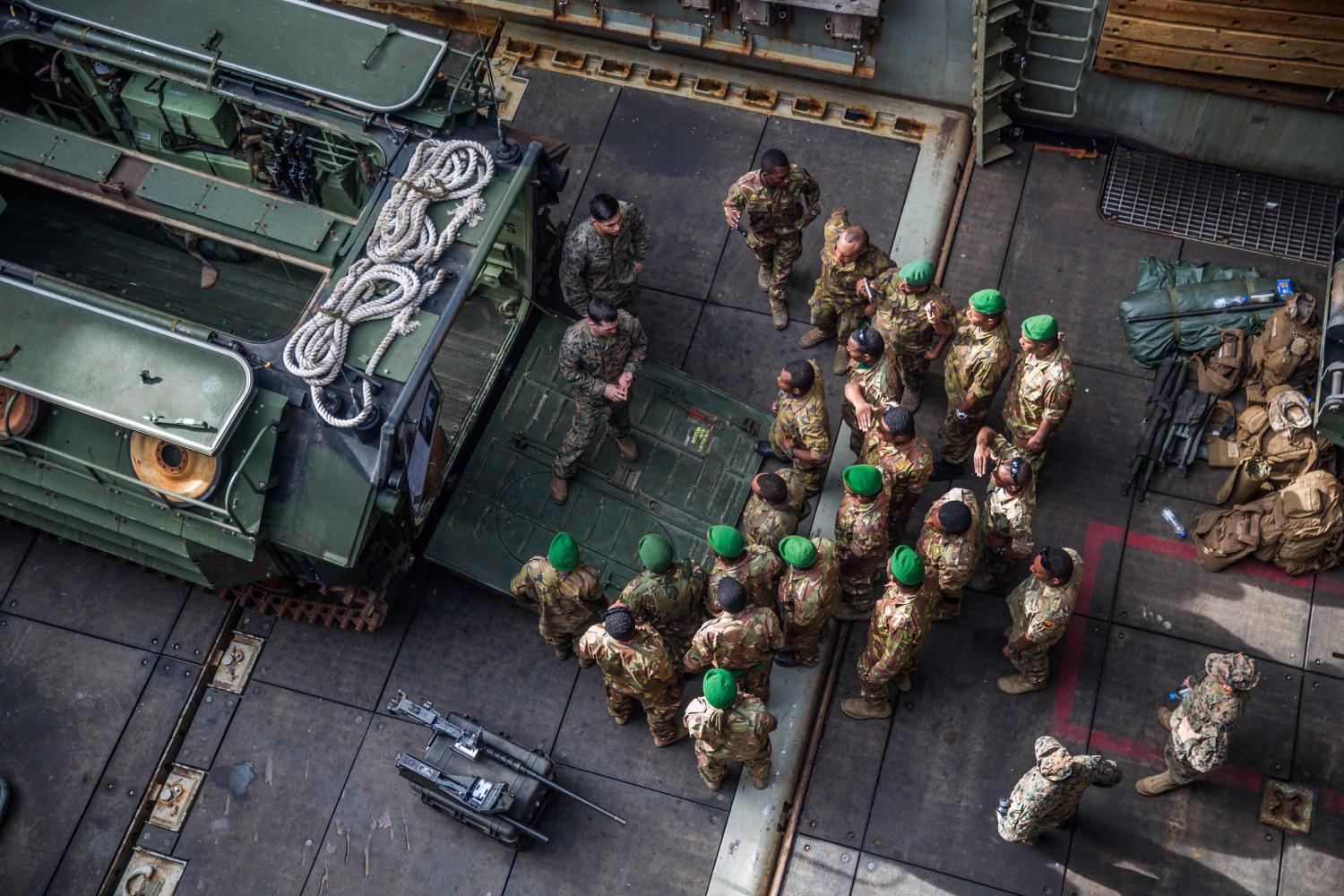The Papua New Guinea-United States Defence Cooperation Agreement (DCA) was signed in May this year, to date, the most tangible example of Washington’s renewed engagement with PNG. And while the United States may see the DCA through a geostrategic lens – emphasising the basing aspects, especially after the 2022 pact between China and Solomon Islands – PNG doesn’t necessarily share this sentiment.
The DCA has actually taken almost a decade to conclude, and this background is important to understand. For PNG, the DCA is about finding opportunities to work with a proven and tested military with the highest standards of professionalism and credibility. This is needed to address long-standing issues of morale and capacity in the PNG Defence Force (PNGDF).
After the 1988-98 Bougainville crisis, the PNGDF faced decline in morale and capacity. When Sir Mekere Morauta became prime minister in 1999, several mutinies were staged by disgruntled members of the military over unpaid entitlements. In 2000, a PNG parliamentary committee report as well as an Eminent Persons Group from the Commonwealth organisation detailed the challenges faced by the PNGDF.
But the Eminent Persons Group report in particular was greeted sceptically in some quarters of the PNG security establishment, seen to be driving an externally driven agenda because of the contentious recommendation to downsize the military. One military insider stated afterwards: “This was a strategic plan by the Australians to render the PNGDF ineffective and the then Commander and government went along with it”. Accusations of foreign influence, and the influence of foreign advisors and consultants, are longstanding contentions in the PNGDF. It could explain why, years later, negotiations for the DCA were led by the Department of Foreign Affairs.
In 2008, the PNG government made spending commitments to rebuild the personnel size of the PNGDF. When Peter O’Neill became prime minister in 2011, he announced a renewed commitment to modernise the military. In 2013, the PNGDF White Paper was released. By 2017, almost 138 of the 235 tasks identified in the White Paper were implemented, but due to economic challenges, defence spending remained at two per cent of government expenditure.
Alongside its domestic modernisation efforts, PNG also reached out to non-traditional security partners such as Indonesia and China in a bid to diversify sources of assistance. Indonesia and PNG signed a Defence Cooperation Agreement in 2010, although it is still yet to be ratified by PNG. On a state visit to Israel in 2013, O’Neill concluded an agreement with Prime Minister Benjamin Netanyahu for Israel to train PNGDF personnel.
Also in 2013, then PNG Defence Minister Fabian Pok travelled to China in a bid to secure K170 million ($70 million) to modernise PNGDF vehicles and equipment, although there is no evidence this amount was secured. In 2017, China did make a K17.5 million donation of military equipment to the PNGDF. While these efforts did not translate into security agreements with Indonesia or China, they demonstrated the urgency the government felt about dealing with the PNGDF’s challenges. The parliament passed the Defence Force (International Obligations) Act 2010, with the intention of committing PNG to undertake international and regional peacekeeping operations, part of a strategy to expose the PNGDF to operational conditions.
O’Neill also used the 2018 APEC summit, hosted in Port Moresby, to attract American assistance in training the PNGDF. O’Neill had made initial overtures during a 2014 meeting with US Pacific Naval Commander Admiral Samuel Locklear, and it was in 2016 that negotiations for the DCA began. During APEC summit, the United States expressed interest in partnering with PNG and Australia in the refurbishment of Lombrum naval base in Manus. As face-to-face interactions between US and PNG officials became more regular, the DCA was finalised.
As PNG seeks new security partners, the views and influence of traditional benefactors will be reassessed. This was the same realisation that Solomon Islands Prime Minister Manasseh Sogavare reached when switching diplomatic relations from Taiwan to China and subsequently inaugurating a security agreement with Beijing. The multipolar nature of the international system leaves open possibilities for security partners in specific niches.
Which leads to today. On 7 December, Australian Prime Minister Anthony Albanese and PNG’s James Marape signed the Framework for Closer Security Relations. But what is important to emphasise is that this agreement is not on the same level as the deal between PNG and the United States. The DCA is explicitly about the capacity and professional expectations of the PNGDF, while the PNG-Australia security agreement emphasises internal law enforcement for PNG, with the Royal PNG Constabulary the major beneficiary. Lawlessness, tribal warfare in the Highlands regions, increasing public distrust of the PNG police over instances of brutality, and disregard for the rule of law continues to plague PNG. At the height of the destructive tribal war in Enga province in August, local governor Peter Ipatas sought Australian assistance to quell the violence.
A prolonged sense of familiarity with Australia could well explain why PNG is content to expand the security arrangement beyond police and defence to wider security issues, far in excess of those covered by the US agreement and more intertwined with domestically sensitive law and order issues. But also, despite PNG’s push to modernise its military, the PNG-Australia agreement reinforces the idea that domestic law enforcement and the capacity of the police force has precedence in PNG’s security thinking. The attention devoted to the US-PNG deal is misplaced, because for PNG, it is the internal security dimension that is more pressing.


